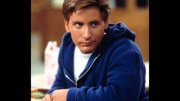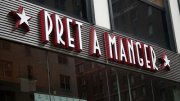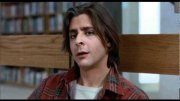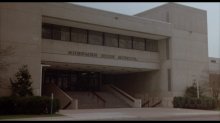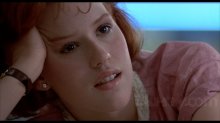
"Don't you forget about me, " goes the song, and few in the right demographic who saw this film 25 years ago have forgotten 'The Breakfast Club'.
One of the more amusing, albeit morbid, parlor games film fans play every year is the annual Oscar "In Memoriam" contest of who will get mentioned and who will get the loudest applause. This quasi-sporting event hasn't quite risen to the heights of brackets in the Final Four, but I personally know several people who wager rather significant sums of money on various aspects of this odd tradition. Of course this past year raised the hackles of many folks when Farrah Fawcett (not to mention Bea Arthur) got left out of the film clip parade, but I personally have long been more interested in the audience reaction levels as deceased people who are (to me, anyway) film icons receive what could only charitably be termed a smattering of applause. How can someone who has contributed as much to filmmaking as the late cinematographer Jack Cardiff not be greeted with a thundering ovation? Quite easily, evidently. What made this past year's Oscar funeral bash even more controversial, at least to those with a curmudgeonly side, was the perhaps unusual decision to grant director John Hughes, who had passed away unexpectedly from a heart attack at the relatively young age of 59, his own segment, featuring several once-household names he had helped elevate to stardom. While some Hughes alumni are still in the public eye (Matthew Broderick and Jon Cryer, for example), others perhaps more forgotten were also in attendance.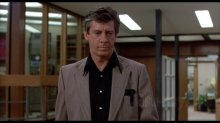 There in front of adoring millions were Ally Sheedy, Molly Ringwald, Macaulay Culkin, Anthony Michael Hall and Judd Nelson, making brief comments about what Hughes had meant to them personally and professionally. It may have seemed peculiar to those significantly beyond the vaunted 18-49 demographic, but for those born from the mid-1970's on, it probably was a perfect way to remember a filmmaker who captured the 1980's zeitgeist as few others. Though Hughes' cultural impact trailed off precipitously in the 1990's, for a rather longish "brief" shining moment from 1984's Sixteen Candles on, he was a writing-directing force to be reckoned with, regularly churning out films that were critically well received (or at least generally tolerated) while raking in huge box office receipts. One of Hughes' best remembered and most beloved efforts was his follow up to Candles, 1985's The Breakfast Club, a film which made detention seem cool, and which established several then up-and-comers as new film stars, whom a magazine writer soon dubbed (along with other actors the same age, like Rob Lowe) "The Brat Pack".
There in front of adoring millions were Ally Sheedy, Molly Ringwald, Macaulay Culkin, Anthony Michael Hall and Judd Nelson, making brief comments about what Hughes had meant to them personally and professionally. It may have seemed peculiar to those significantly beyond the vaunted 18-49 demographic, but for those born from the mid-1970's on, it probably was a perfect way to remember a filmmaker who captured the 1980's zeitgeist as few others. Though Hughes' cultural impact trailed off precipitously in the 1990's, for a rather longish "brief" shining moment from 1984's Sixteen Candles on, he was a writing-directing force to be reckoned with, regularly churning out films that were critically well received (or at least generally tolerated) while raking in huge box office receipts. One of Hughes' best remembered and most beloved efforts was his follow up to Candles, 1985's The Breakfast Club, a film which made detention seem cool, and which established several then up-and-comers as new film stars, whom a magazine writer soon dubbed (along with other actors the same age, like Rob Lowe) "The Brat Pack".
Source: www.blu-ray.com





